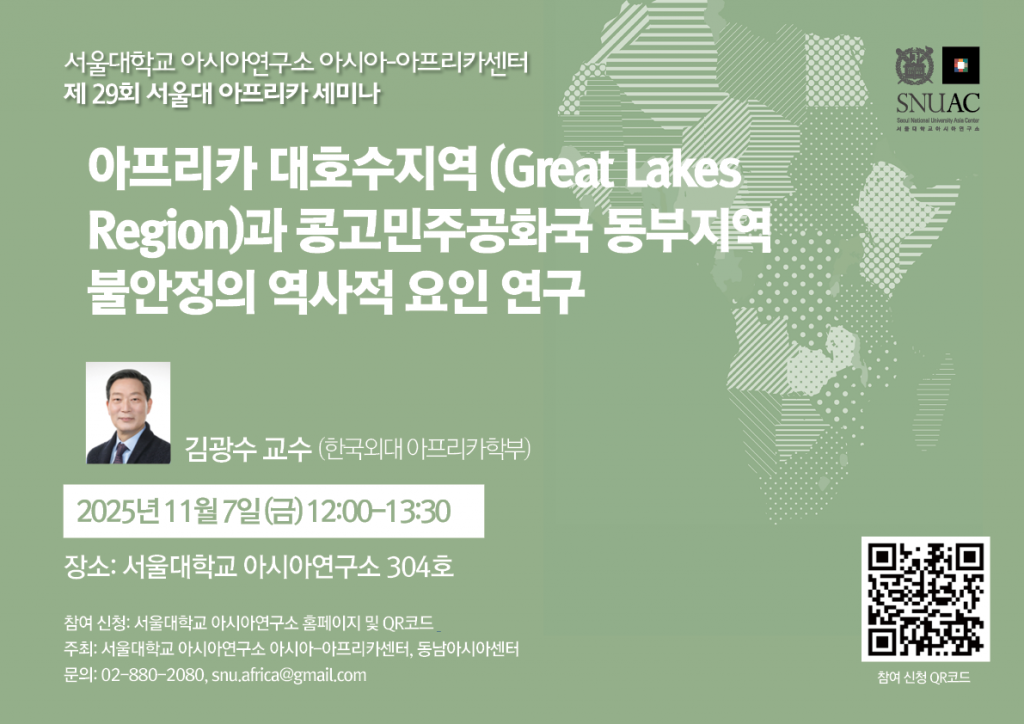
A Study on the Historical Factors of Instability in the African Great Lakes Region and Eastern Democratic Republic of the Congo

- Date: November 7th, Friday, 2025, 12:00 – 13:30
- Location: Room 304, SNUAC (Bldg. 101)
Presenter: Kwang-Su Kim (Division of African Studies, HUFS)
The Asia–Africa Center at SNUAC has been hosting the Seoul National University Africa Seminar series on a monthly basis since 2022. The series aims to promote in-depth understanding of Africa and foster academic exchange by inviting experts with diverse disciplinary backgrounds and professional expertise.
On Friday, November 7th, 2025, the 29th Seoul National University Africa Seminar will feature a lecture by Professor Kwang-Su Kim from the Division of African Studies at Hankuk University of Foreign Studies, titled “A Study on the Historical Factors of Instability in the African Great Lakes Region and Eastern Democratic Republic of the Congo.” This seminar will explore the historical and social factors underlying the complex conflicts in the Great Lakes Region and the ongoing instability in eastern D.R. Congo. In particular, it will examine the formation and transformation of Hutu and Tutsi ethnic identities within their historical context, offering an in-depth look at how ethnic tensions have contributed to regional instability. Through this discussion, participants will gain insight into how the instability of the Great Lakes Region extends beyond local conflicts, intertwining with the legacies of colonialism, state formation processes, and regional power dynamics—thus providing new perspectives on African conflict studies and peacebuilding discourse.
Professor Kwang-Su Kim, currently serving as the Director of the Institute of African Studies at Hankuk University of Foreign Studies, is a leading scholar in the field of African history. He earned his Ph.D. in History from North-West University in South Africa and has pursued extensive research on African history, civilization, oral history, modern history, and Afrocentric historiographical methodologies. Professor Kim’s primary research interests include the instability in the Great Lakes Region and eastern Democratic Republic of the Congo, the historical identities of African societies, and the dynamics between Western colonialism and African responses to it. Emphasizing the importance of oral traditions, he seeks to foreground African perspectives and lived experiences in the study of history, integrating them with analyses of the continent’s political and social transformations. Through these endeavors, Professor Kim has significantly contributed to deepening and expanding African historical studies and has played a pivotal role in advancing African Studies in Korea.
